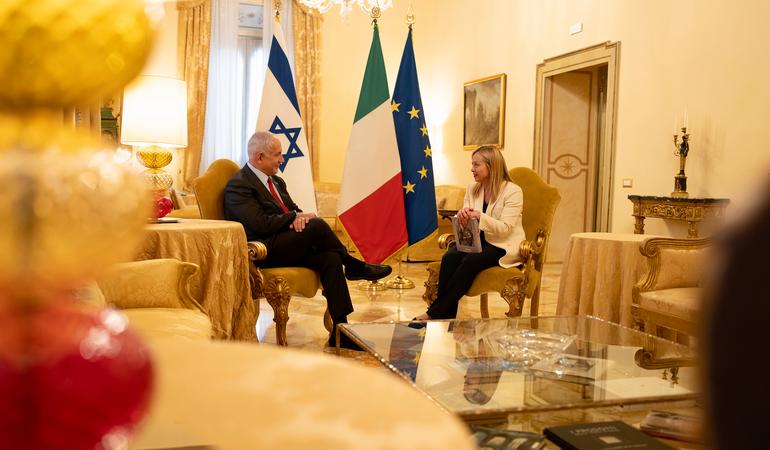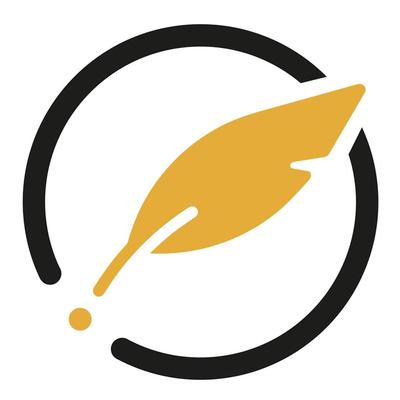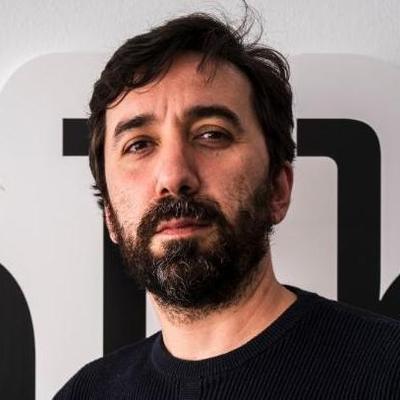

Chi fornisce le armi a Israele? L'Italia prende tempo, ma intanto acquista da Tel Aviv


Aggiornato il giorno 15 aprile 2024
'Yes, I am an agent, an agent for peace, for a Europe without fascism, for minority rights, for a united Europe, from Lisbon to the Urals', Tatjana Ždanoka, 73, MEP for the Russian Union of Latvia party, addresses the European Parliament on 6 February. "Yes, you are an agent for peace like Vladimir Putin is," her Lithuanian colleague Rasa Juknevičienė immediately replies, in open controversy. "Perhaps, if you consider yourself an agent for peace, the best you can do is to ask your friend and ally Putin to remove his presence in Ukraine," Czech Marcel Kolaja pressed a few minutes later.
These are a few passages in the debate on the hypothesis of Russian interference in the democratic processes of the European Union, and Ždanoka is under indictment: on 29 January, the independent Russian newspaper The Insider and other media revealed that the Latvian MP, of Russian origin, has been collaborating with two agents of the FSB, the Kremlin's main secret service agency, since at least 2005. This would explain her certain activism to protect Moscow's image and interests. For instance, on 2 March 2022, when - The Insider recalls - she was among the 13 MEPs against the condemnation of the invasion in Ukraine.
Whether she is a secret agent or not, Ždanoka's is just the latest case of attempts at foreign interference in EU decisions. A much-discussed topic in this legislature drawing to a close, and definitely relevant in view of the June elections. A legislature marked, in its last years, by the Ukrainian conflict, and - internally - by Qatargate, i.e. the investigation by the Brussels public prosecutor's office into the alleged corruption operated by the Emirate and Morocco on some MEPs. "After Qatargate, on the extreme right and the extreme left of this hemicycle they manoeuvred to talk only about Qatar, to put an end to the committee on foreign interference and no longer mention Russian interference in the parliament", denounced Frenchwoman Nathalie Loiseau, of the liberal group Renew Europe, during the same debate on 6 February. For some, one affair nullified the other. In reality, it increased the shame on the European assembly.
Russian media in exile, the story of three journalists Putin does not want
Millions of euros lent by Russian banks close to the Kremlin to the French right-wing party, first called Front national, then Rassemblement national. Other money arrived in the coffers of Alternative für Deutschland (Afd), the party of the extreme right in Germany. Then the meetings at the Metropol Hotel in Moscow between League leader Matteo Salvini, his collaborator Gianluca Savoini and some businessmen linked to Putin's power to discuss an oil deal and funding for the Italian party ahead of the 2019 European elections. By supporting right-wing Eurosceptic parties, Putin has tried to introduce a germ into EU institutions.
Since these episodes, the European Parliament has addressed the issue of foreign interference in Europe not only by supporting right-wing formations, but also by spreading fake news via the Internet and cyber-attacks on EU institutions. In September 2020, a parliamentary committee called Inge was created and dedicated to foreign interference, including disinformation, 'a signal to all foreign powers that try to interfere in the democratic process,' said chairman Raphael Glucksmann, a French MEP. The era of European naivety is over'.
Moscow has also woven its network by hiring former European politicians within Russian companies. This is elite capture. Former German Chancellor Gerhard Schröder and former Finnish Prime Minister Paavo Lipponen both worked for Gazprom, the Russian energy giant. The former Foreign Minister of Austria, Karin Kneissl, was appointed to the board of directors of Rosneft, another company in the sector, and François Fillon, former Prime Minister of France, was on the board of Zarubezhneft, an oil company.
"Countries such as China and Russia, but also Qatar, the United Arab Emirates and Turkey, have invested heavily in lobbying operations in Brussels," reads the committee's report, presented on 9 March 2022, in which it emphasises the lack of tight constraints on lobbying and influence and proposes actions to be taken. Immediately afterwards, the war in Ukraine broke out, the committee continued its work also because 'on the eve of the European elections in 2024, an increase in interference and information manipulation activities is expected'.

The concluding report, published a few months after the Qatargate scandal, emphasised that 'lobbying on behalf of foreign interests, particularly when it involves companies in strategic sectors and their governments, can pave the way for foreign interference in our institutions'. Sometimes, it is lobbying firms, those usually working on behalf of companies or other organisations, that provide a service to third states that do not have their own representation. 'During the Brexit period, Gibraltar was represented by a lobbyist,' explains Mercedes Bresso, a Pd MEP who served on the Ing2 parliamentary committee. It was a former politician.
And it was a former Italian politician, Antonio Panzeri, who oiled the wheels to look after the interests of Morocco and Qatar. So it emerged during the investigation by the Brussels Public Prosecutor's Office, which came to light on 9 December 2022 with a series of searches and arrests in Belgium and Italy. Panzeri, a former Pd and Article 1 politician, is believed to be the person who, in exchange for huge sums of money, made his political connections available to the interests of Qatar, Morocco and Mauritania. His right-hand man was the assistant Francesco Giorgi, companion of the then vice-president of the parliament, the Greek Eva Kaili. Other Italian and Belgian MEPs are under investigation.
According to the investigators, Panzeri (who on 17 January 2023 plea-bargained a reduced sentence to one year in prison in exchange for cooperating with the investigators) allegedly distributed bribes and favours to soften the judgments of elected representatives on the state of human rights in the countries concerned. "European democracy is under attack," said parliament president Roberta Metsola a few days after the arrests. However, some of the suspects denounced the role of the Belgian secret services at the beginning of the investigation, violations of rules and the arbitrariness of the investigators (in Belgium, prosecutors are appointed by the government, but the Brussels public prosecutor's office defends its autonomy and impartiality). The crimes are to be proven, but the attempts of external influence on the EU institutions and its representatives seem clear.
After the Qatargate arrests, parliamentary chairwoman Metsola and Commission chairwoman Ursula Von der Leyen proposed actions to improve transparency and ethical controls. Metsola set 14 goals to be achieved, while the Commission, which holds executive power, proposed a series of measures for the 'defence of democracy' and the creation of an 'ethics body'.
According to Nicholas Aiossa, director of Transparency international Eu, 'the Qatargate showed first of all that the ethics system of the European parliament was extremely weak and unsuitable to prevent this kind of scandal. The problem is that, subsequently, the parliament did not correct these weaknesses'. The Brussels branch of the NGO monitors the political integrity of the EU institutions and has been denouncing the lack of adequate responses for months: 'The reforms adopted in many respects water down the transparency provisions of the current rules,' continues Aiossa. He would like as much attention to be paid to the ethical issue as to external interference: "I understand rightly that foreign threats, particularly from Russia, are very important, but we need to be able to deal with them holistically. It is necessary to propose measures that also protect democracies from domestic actors who often collaborate with foreign actors to corrupt the democratic process'.
Update 15 April 2024: In Brussels, the Belgian federal prosecutor's office opened an investigation into the pro-Russian propaganda network accused of paying MEPs to promote Kremlin interests. This investigation stems from charges brought by the Czech Republic against the online newspaper Voice of Europe (VoE), accused of pro-Russian propaganda, and the Ukrainian pro-Putin oligarch Viktor Medvedchuk. The suspicion is that, through Voice of Europe, Moscow paid off some MEPs.
This article was translated by our partner Kompreno with the support of DeepL.
La tua donazione ci servirà a mantenere il sito accessibile a tutti
Crisi idrica, incendi, mafie e povertà: chi guadagna e chi si ribella nella Sicilia delle emergenze
La tua donazione ci servirà a mantenere il sito accessibile a tutti